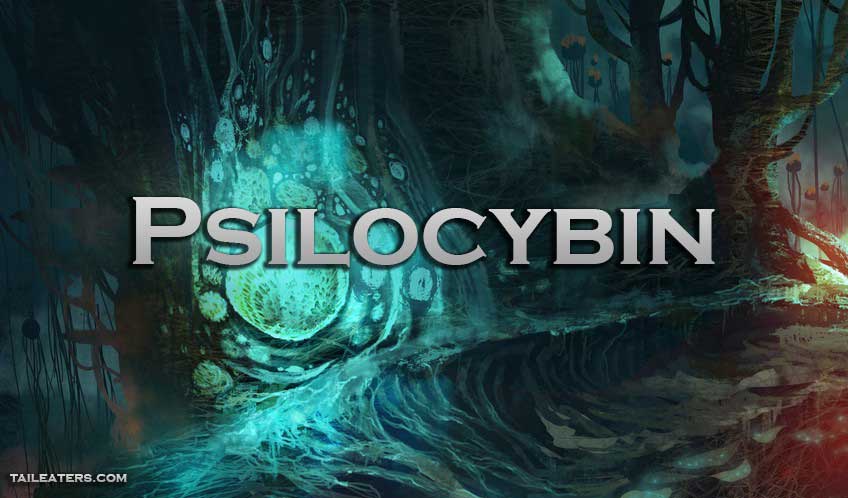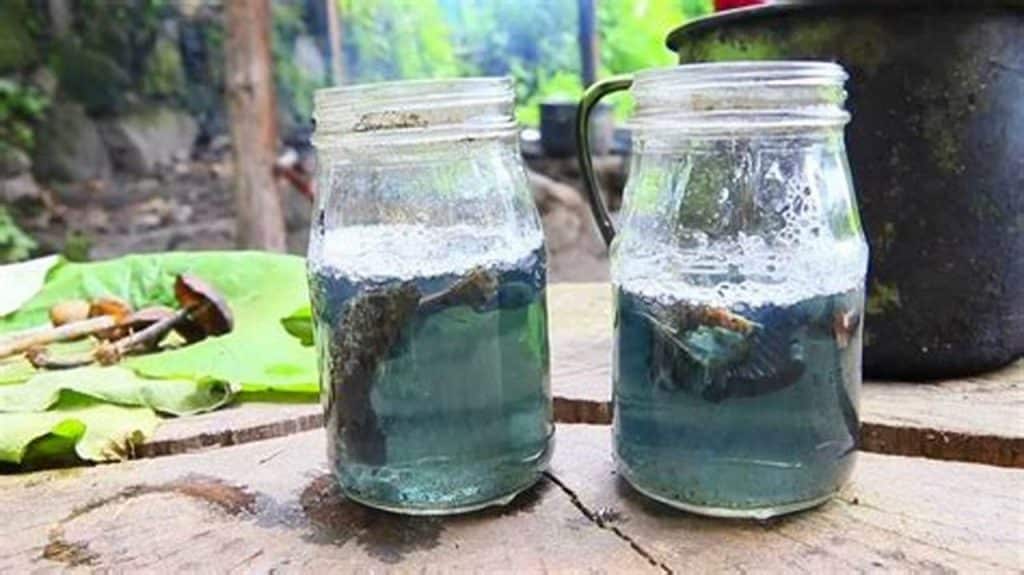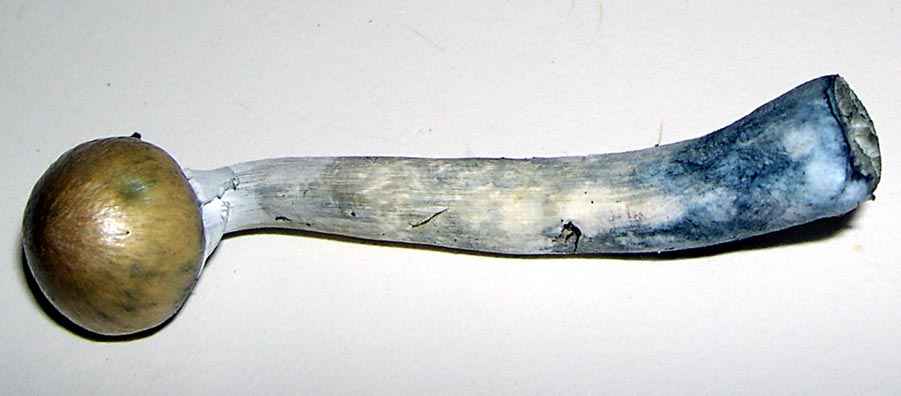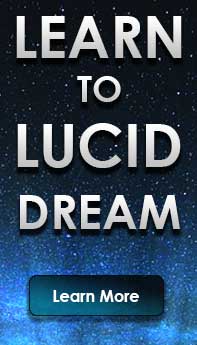
Psilocybin: A Blueprint to a Better World
At the 2018 Spirit Plant Medicine Conference, one of the most common themes heard was a shared belief by multiple presenters and numerous attendees that psilocybin mushrooms represent a real means for the planet and humanity to begin healing. Prior to my attending, I had come to a similar conclusion as a result of messages received from the mushroom while under its watchful guise in early September. This article is the result of this common message found in the psilocybin experience: a brief guide to the possible means this hypothesis might be a real future, scientific peer-reviewed research supporting this conclusion, along with several tips, suggestions, and bits of cautionary advice for those interested in the psilocybin experience for themselves.
In this psilocybin shares a symbolic connection to the blueprint. A blueprint is a guide for building something, say a house or car or better world. Psilocybin bruises blue, has a blueish sporeprint, and makes blue juice through the cold extraction method.



A Common Message
Seeing how many attendees related similar experiences about psilocybin, one would suspect that the mushroom is actually instructing humans or is the one directing this shared message. This isn’t that outlandish an idea given the notion that plants are alive. As Dennis McKenna noted: we aren’t running the planet, the plants are. Thus, perhaps psilocybin is actually causing this message to be spread about in some sense.
Dennis McKenna–along with his more famous brother Terence–have long been proponents of psilocybin as a means of a return to archaism, some time before the craziness of modern civilization took root. Indeed, Terence was the first and still strongest proponent of the Stoned Ape Theory. The Stoned Ape Theory posits that psilocybin was responsible for the development of human consciousness and represents the original Tree of the Knowledge of Good and Evil. From psilocybin would have sprung religion, basic culture, altruism, and numerous other changes which, I argue, would have promoted the development of early forms of civilizations and changes in brain development. Although direct causal evidence is lacking, the connections are compelling.
Learn to Lucid Dream and Gain Rewards
![]()
Learn to lucid dream and complete tasks for re-life rewards.
The second day’s first speaker, Paul Stamets, gave a motivating and passionate speech. The primary focus of his message was that participants either get on or off the bus of promoting psilocybin as the key to humanity’s survival. Paul linked mushrooms as being something humans are descended from—ancestors—and pointed to extensive research regarding positive effects of psilocybin on pro social and civilization dependent behaviors. Being perhaps the most widely respected and famous mycologist in the United States, Stamets’ speech struck me as a rallying cry around the flag of psilocybin.
Although they lacked the name recognition of Stamets, the Oregon Psilocybin Society even more ardently promoted psilocybin as a means for bridging a disintegrated and disconnected society. Their message emphasized the means through which psilocybin might integrate the human experience in several different domains, such as unifying people’s past and future, helping them to live in the present. In this way, psilocybin instills an incredible sense of personal meaning by helping some to understand their story. Similarly, psilocybin represents a palliative end-of-life care option since it can bring people closure on their lives before death.
Among attendees, a similar refrain was discussed in those I talked to. Almost everyone at the conference seemed to have a similar mindset in which they hoped to use psilocybin as guides.
Personal Experiences
Under tutelage of a guide in a forest, I had a personal vision of having an off-the grid type of farm in which I would offer plant medicines like psilocybin for free to veterans and others. I did not enter into the experience having this idea consciously–rather, it seemed to result from something unconscious within me. Later, in another forest, I asked a supernatural aid what it was I had been meant to discover with psilocybin. This time I was no longer under its effects.Yet I still received a loud voice telling me explicitly that “Psilocybin is an ancient technology that can roll-back the tide of human progress.” I took that as meaning that psilocybin represented a means to diminish the widespread destruction the human ego has wrought.
Attending the conference and speaking to various attendees helped me realize that the similar vision they had had meant mine was not unique. Indeed, the feeling that it was unique or that I learned something special seemed a transformation of the ego into a spiritual ego or superego.
Seeing the Story of Your Life
In my usage of psilocybin, one theme has been a kind of unification of the story of my life. Psilocybin seems to connect someone with their past to explain why that past has led you to where you are today, including various decisions and events made along the way. In this sense, life can be seen as a kind of path with clear purposes for each outcome, all the way back to early childhood. For example, it showed me reasons why I’ve felt a strong connection with veterans for most of my life even predating my time in the military. In connecting with that past and everything we’ve done since, psilocybin created visionary experiences of my future.
By connecting the story of our lives, someone in a state of uncertainty or despondency about the conditions of their life can come away with a clear reason for being where they are in the present, and a possible future upon which to aim for. For someone lacking meaning or personal direction, common outgrowths of depression, the implications of this are obvious.
In multiple experiences, I found that this theme changes forms, like different outcomes of our personal story. Themes ranged from being a psilocybin farmer to being a psychologist working with psilocybin, to being someone interested in my own writing project and working with and sharing my symbols, my own minor form of Joseph Campbell or Carl Jung as Hero models to live my own truth by. In another, psilocybin turned me into my own version of Neo from the Matrix, with me trying to break others from the Matrix’s control in my own small way.
These visions of one’s future were interesting, but I feel they should be enjoyed and not attached to. In becoming attached to these ideas from psilocybin, one can fall into a new kind of trap with anxiety related to trying to control the future, which is something none of us can do. It can also result in an obsession about this future person with an inflated sense of importance, the superego. Rather, these personal visions are like gifts from Consciousness which allow someone to relax and live more in the present.
Research
Mental Health
Psilocybin produces a number of benefits in those who take it in clinical settings. Among these are producing profound changes in symptoms related to depression and anxiety that are long-lasting (Griffiths et al. 2018). Given that depression and anxiety are inherently learned fear responses, one means through which this occurs is altering the induced fear-response by altering/modulating hippocampal pathways (Catlow, Song, Paredes, Kirstein, Sanchez-Ramos, 2013; Kraehenmann, 2015).
Post-traumatic stress disorder, too, is intricately linked to a stress-induced learned fear, caused by in this case an intense traumatic situation (Rajbhandari, Gonzalez, Fanselow, 2018). Psilocybin allows one to unlearn what has to that point been a learned memory of fear whenever a similar event is encountered. This is how post-traumatic stress disorder works–a stimulus from the traumatic event is relived over and over whenever similar stimuli occur. What is actually PTSD is also at the root of much depression, then.
Also essential to effects on mental health are the mystical experience of psilocybin (Griffiths, R., Richards, W., Johnson, M., McCann, U., & Jesse, 2008) . The mystical experience is described as a unique subjective and spiritual experience, which is commonly described as one of the most profound or important of people’s lives. Among the mystical aspects are: a feeling that the reality while under psilocybin is more real than everyday reality; an internal connection and unity within this ultimate reality; a greater connectedness to other things via an external unity; a feeling of moving beyond time and space (Griffiths, R. R., Johnson, M. W., Richards, W. A., Richards, B. D., McCann, U., & Jess, 2011).
Two Forms of Death
In general, psilocybin also causes a more outward-looking-inward perspective of one’s self, such that this self is seen for what it is. This is also known popularly as ego dissolution, or ego death. Psilocybin seems to achieve this by temporarily shutting down the default mode network, which can be roughly equated to our normal mode of brain functioning–and thus the working ego (Carhart-Harris, 2012). Shutting down this normal mode allows for “unrestrained cognition” and results in a kind of entropic state in the brain (Carhart-Harris, 2014).
In this sense, psilocybin would seem to be putting someone more in tune with what is called consciousness. Given that creativity and its many forms such as emotion, imagination or art would seem to come from this same source—somewhere subjectively inexplicable—it makes sense then that psilocybin is putting people closer to this idea or place within of what is normally called God.
Another important factor of death comes from Western culture’s widespread fear of death. Thinking of why we fear death in the first place, it seems in part an obsession in leaving some artificial legacy behind ourselves, which is the ego. As the ego dissolves or slowly break apart through psilocybin use, we no longer remain overly-concerned about whatever there is waiting after this life. Instead, psilocybin for various reasons tends to reorient us towards personally meaningful and gratifying pursuits through greater connectedness to fellow humans and all other things.
Psilocybin is therefore a means of clear disruption to consumerism, personal greed, and seems to lead at least some towards more personally meaningful vocations. Therefore, psilocybin is an effective means to begin the call to adventure.
Perhaps the greatest fear we all face through life is the fear of death. Yet psilocybin helps people tend to realize that doing something personally meaningful alleviates this fear. Meaningful can be raising one’s own consciousness or sharing our own experience while others raise their consciousness. As we engage in more personally meaningful activities, a kind of parallel greater connection with consciousness begins to occur. This greater connection eliminates much fear or concern related to death; in my case, the primary fear that remains is not actualizing some personally meaningful project and instead reverting back to refusal of the call.
Altruism and Creativity
In terms of how we work with others, psilocybin has a number of effects related to altruistic behavior. Altruism can be loosely defined as sacrificing one’s own being through time, attention, or behaviors towards others without immediate return benefit. This sacrifice is offered to those not related to us, those who we don’t pass our genes explicitly on through. Among the ideas lumped into altruism might be empathy, which is the ability to feel the emotions of others (Pokorny, Preller, Kometer, Dziobek, & Vollenweider, 2017).
Another is exhibiting more prosocial behaviors, such as a reduction in aggression and greater kindness. Finally, psilocybin induces a greater connection to the environment instilling a more pro-ecological perspective. All of these seem to be related to a greater overall connectedness with all things, which seems related to the unity of the mystical experience (Griffiths et al., 2011).
In this sense, through the brief ego dissolution which occurs, psilocybin can also lead to self-reflection in how someone has treated others or oneself. This seems to occur through deactivation of the default mode network, which is internally oriented, and activation of the task-positive network, which is externally oriented. Along with this, psilocybin has associations with the symbol of the Cross, which is related to responsibility for personal suffering. Because of this, psilocybin can be quite unnerving and emotional depending on how one has lived their life.
Another important element of psilocybin is its ability to affect personality changes related to the personality domain of openness and various forms of creativity (MacLean, Johnson, & Griffiths, 2011). Creativity, too, is linked to the mystical experience of using psilocybin (Griffiths et al., 2011). The mystical experience often has the characteristic of being ineffable, which means it is hard to explain in words.
Terence McKenna questions whether language even existed when psilocybin started being used, such that psilocybin may have led to language as an outlet of creativity (McKenna, 1992). Art or other forms of creativity can easily be seen as the most effective means for early hominids to explain their experiences under the influence of psilocybin. Given the imagery or intense thoughts and ideas typically associated with psychedelics, and the possibly closer connection to Consciousness, early creativity could be further seen as an effort to put these otherwise bizarre-seeming images to form.
Healing the Planet
Perhaps the greatest of risks to humanity comes from the many forms of destruction to our planet potentially all caused indirectly or directly by us. Among these are climate change and resultant growing frequency of natural disasters, nuclear destruction, or artificial intelligence taking up everything or consuming endless amounts of power then polluted back into the atmosphere.
Paul Stamets pointed out at the Spirit Plant Medicine Conference that mycelium can drastically reduce colony collapse of bee colonies (Stamets et al., 2018). Bees are essential to human food production and, perhaps more importantly, to the reproduction of a bevy of native plants across the world.
Another important aspect of psilocybin is that it increases relatedness to not only other living things, humans especially, but also nature (Lyons & Carhart-Harris, 2018). This seems to result from a new perspective of seeing life in everything, including plants and even inanimate objects like rocks. In this way, psilocybin represents a very real way for people to potentially start reconsidering their personal treatment of nature and contribution to its destruction.
How to Find Psilocybin
The main challenge for someone interested in trying psilocybin for the first time, or in using it regularly as a tool for personal growth, is obtaining it. Fortunately, several ways exist and, in the worst case, growing your own is not that difficult. It is important to note that Taileaters neither grows nor offers psilocybin. However, psilocybin seems to bea powerful means for numerous people to heal internal struggles. Someday, when psilocybin is legal, I might hope to offer guided experiences using psilocybin, but legalization seems a good distance off.
Mushroom Hunting
One way, perhaps the easiest depending on where one lives, is to search out and pick your own. Although not all regions are suitable to mushroom growth, particularly arid climates with little year-round rainfall, various psilocybin mushrooms can sometimes be found outdoors. Identification is key, however, since many mushrooms are not necessarily safe to ingest, and certain psilocybin mushrooms have close-looking counterparts. One guide to proper identification is Paul Stamets Psilocybin mushrooms of the world: an identification guide.
This is likely to be one of the more challenging methods since, even if one does live in a suitable climate, psilocybin does not typically grow widespread in the wild. Although they cluster around sporadic areas naturally, more often they are the result of spores being spread intentionally or randomly by humans. Further, few reliable guides exists for where to find these mushrooms patches, leaving the enterprising hunter to rely on obscure websites and hope for the best, or find someone experienced in mushroom hunting.
Find a Friend
If you can find someone experienced in mushroom hunting, chances are that person may also grow their own or know someone who does. Thus, if this is the case, you could hope to convince that person to help you out. Otherwise, your best bet may be to find someone through other points of contact. Cannabis, as a mild kind of psychedelic, may serve as the means to begin locating someone.
Grow Your Own
The easiest method, although the one with the least immediate gratification, is to grow your own psilocybin mushrooms. Although it may seem intimidating to some as a kind of learning curve, there are numerous resources which make it out to still seem harder than it is. Among the best and simplest to get started is Roger Rabbit’s video series (http://www.mushroomvideos.com/). Simply buy the same materials he has and then purchase mushroom spores from a website like http://sporeworks.com/.
The materials are common canning and cooking supplies. Spores are legal to buy, but are technically to be used for microscopy purposes. This is disclaimer seems a facade, and numerous people continue to buy spores online with few repercussions and grow their own. Psilocybin does not seem to be among either the DEA or law enforcement’s highest priorities.
For more detailed guides on various options for growing, check out Shroomery (https://www.shroomery.org/). There are mountains of information there. However, the Roger Rabbit videos should work well for any beginner.
Dosage
After obtaining your first amount of psilocybin, the next most important consideration is how much you should take. In this, four categories can be distinguished (Hatsis, 2018).
Microdose: This dose is generally considered to be less than one gram of psilocybin, often .5 grams or less. The microdose is often used for a mild boost to creativity and productivity. Technologists in Silicon Valley have been well-known to microdose, for example, as a means to get ahead of others in their field. In my personal experience, I don’t find this level to be enjoyable. Rather, I find it creates a kind of speed effect similar to what Terence McKenna described. In this sense it creates some further sense of anxiety with an obsession of doing.
Threshold Dose: The threshold dose is roughly 1 gram. This is the level at which psilocybin gives noticeable effects. For those interested in trying to function in the normal world, this would likely be among the highest dosages someone might want to use. At this level greater feelings of creativity should occur.
Psychedelic Dose: This is the dose at which someone can have a spiritual experience without going full out towards complete ego dissolution. This dose is likely to be 1 or 1.5 grams up to 4 grams.
Heroic Dose: This dose is 5 grams or greater, and is the dosage level often talked about by Terence McKenna. Indeed, he discourages dosages of much less than this level and affirms that the most effective learning and transformation occurs on this level of dose.
State and Setting
As important as dosage is one’s state of mind and setting. Regarding state of mind, I mean the level of discomfort and distress one may find themselves in when undertaking the psilocybin experience. Regarding setting, this is where we decide to use psilocybin. Unless you are particularly adept at using psilocybin, it is likely not a good idea to use it in public place or around people you don’t know well and trust.
State of mind is important because if one is more anxious leading up your experience, including the moments when you eat psilocybin, you are likely to have a more anxious experience or have anxious thoughts. This can create a more unsettling experience than would otherwise have been the case. However, while some may view an anxious experience as bad, it is in some sense a darker side of one’s self, the ego, the Shadow. So, being induced into a strange state of slight or major paranoia can eventually be helpful as a learning tool about one’s consciousness. The strange character don Juan in Carlos Casteneda’s books seems to suggest this, as he gleefully remarks on hitting the assemblage point–interpreted as the ego–right as it pops furthest out into existence.
Another consideration about state of mind is that with psilocybin it is easy to see how this frame of mind can be altered through conscious will or awareness. Thus, even if someone is anxious beforehand or finds themselves getting anxious, it is possible to change this perspective by saying or acting in a state of mind you prefer to be in. If someone prefers to be happy but is finding themselves heading down a difficult thought tangent, then smiling or saying affirmations would revert this and the subject would become happier. The challenge is remembering to do this, which is why a healthy frame of mind entering into the experience can still be useful.
Setting is also important and is related to the state of empty cognition psilocybin puts one into. Within this state of unrestrained cognition, someone is in a chaotic or entropic frame of mind in which we are receptive to a great much more stimuli than we would otherwise be receptive to. In shutting the brain’s Default Mode Network down a great more information is allowed to enter in, whether we want it to or not. Thus, other people, with their array of emotional cues and behaviors, send us more information than a great deal other sources do. Based on whatever event occurs, this vulnerable state of the brain means it will be more susceptible to any positive or negative stimuli. Thus, being out in public can be a risky venture, as can using the internet or checking one’s phone.
Instead, for setting, a good place is while in bed trying to sleep or just relaxing. Another good place is to be out in nature as that will also induce a greater connectedness to nature. If you feel that you must stimulate your eyes, consider watching a Disney movie or HBO television show which follows the Hero’s Journey narrative, which is most of those two categories.
Considerations for Experiencing Psilocybin
Psilocybin can be profound but also unnerving in the sense that we humans tend to attach ourselves to great ideas we think are ours. Rather, ideas exist in the unconscious and seem to enter and leave us, come and go. These ideas on a personal level may perhaps be the possible visions for our future taken to grandiose, obsessive, superego or spiritual ego extremes. As well, in showing a kind of movie of our life, it can also be unnerving by showing darker aspects of ourselves as reasons for our suffering. For some, blind to their dark side for so long, this latter fact can be ego-shattering. Indeed, given that so many in our world cling to some false self-projection based on who their parents or culture wants them to be, and not who they want to be, the unnerving nature of this is understandable.
The best advice I can share from my experience is that someone takes the psilocybin experience for what it is without getting too wrapped up in specific messages.
Attachment and Suffering
Attachment to who we were or who we could become, whether that identity seems destructive or constructive, leads inevitably to more suffering and anxiety. If psilocybin shows a future version of yourself, and that person is someone you would rather be than the life you had been living leading up to that, then take small, gradual steps towards that future while remaining grounded in the present. Any imagined future, while possible, is still never a certainty since we do not have utter control over the outcomes of events, with 7.5 billion humans playing some role and the unconscious playing an even greater role behind the scenes.
Bruce Sanguin described at the Spirit Plant Medicine Conference how he felt with one of his first psychedelic experiences: “My life has not been mine for 55 years.” If psilocybin shows you that the life you’ve been living has been an illusion or lie, the person you clung onto a fiction, accept that as well. Regardless of how far we’ve gotten in life, the past is just some fiction of a previous mode of being based on our memories, just as the future is a similar fiction.
This disruption is one step on the slow path toward unity of Consciousness. If anything in life matters, it is this progression towards consciousness, and whether one takes those steps earlier or later in life may be less important. Healing ourselves through this unity of Matter and Spirit helps us figure out who we truly are; psilocybin helps induce this unity of our story just as the Hero’s Journey does. This unity is the closest form of a universal meaning and purpose for humanity that seems to exist from what I can find, the ultimate purpose of life. It doesn’t matter when we start taking those steps or how many lives we try to affect, it simply matters that these steps are taken. The myths make this clear.
One final consideration relates to possible feelings of guilt or anguish over one’s past. Psilocybin showed me, repeatedly, how my actions may have affected others in ways I was blindly unaware of. In some sense I felt racked with personal guilt over things I had done, me projecting my Shadow onto others repeatedly. In other ways, this involved taking greater responsibility for my past, guilt as a lesson, to transform myself. Psilocybin teaches us that we are responsible for our own suffering.
Cautions and Do Nots
There are a number of considerations I have found to be helpful when using psilocybin. Since psilocybin resets one’s default mode network, it is like putting someone into a vulnerable state, blank slate.
Thus, it is essential to feed one’s brain healthy inputs during this state. If the brain is fed a healthy mental diet in this liminal kind of psilocybin space, then more healing should be expected to occur regarding overcoming past trauma: something nearly everyone seems to share in some form if only we would start staring at our Shadow. If it is fed an unhealthy diet, the experience can be unproductive and perhaps negative. This last point is cautionary and likely any aspect of the experience, negative or positive, can be consciously willed away as just part of a story, or possible stories.
Other precautions:
- Be careful about using technology while using psilocybin. Technology can be like a mirror for the ego and seems to build egocentrism through social media and algorithms. This counters the purpose people typically use psilocybin for: some form of ego dissolution.
- Take caution in answering the phone or interacting with people likely to involve intense emotions. Because we all fall into habits of behaving around certain people, these habits as destructive parts of our past can return and dilute the experience.
- Be careful about traveling around other people on higher dosages. Psilocybin makes one particularly susceptible to information entering the brain, and being around too much noise or people causes someone to pick up on mental information and this can be overwhelming. Rather, try to stay in one place for the duration, or walk around in nature
Other Considerations
Psilocybin can sometimes result in heading down a bad train of thought that someone either is not ready for or finds too overwhelming. This is the “bad trip” infrequently reported. Rather, psilocybin just gives us information and we can process that information for self-growth or let it burden us further.
- Have a mantra ready. Something like: “I am alright, I am okay.”
- Say a prayer. If you decide there is a question you seek the answer to, you can manifest this aloud by relaxing and asking your question. Some may do it in their minds, but for some reason it works better for me when I say an intention or prayer aloud.
- Click your heels and repeat “There’s no place like home.”
- Reground yourself by watching a Disney movie or reading a myth to help reinforce the Hero’s Journey theme of psilocybin.
Processing Your Experience
In using psilocybin, perhaps the most important part of the experience is processing and integrating it afterwards. Psilocybin can show many tremendous and challenging things within us, our own dark and light sides. This can be unsettling, and for some it can result in being carried away by the messages, the story. For example, someone may feel overwhelmed by the Shadow side of themselves, particularly those who have avoided that aspect. Another person may cling obsessively to some other story, the transformation of the ego into the superego.
Another approach is simply letting the experience be what it was, neither good nor bad. This is like the Middle Path. Because we all live in our heads to some extent, it may be extremely helpful to process with another the meaning you take from the experience. Here are some ideas for doing that:
- A Non-Judgemental Friend: This person can ask questions about your experience or simply listen to whatever occurred. Most important in this is that you speak with someone that you trust, who won’t try to interpret the experience for you but instead listen as you understand your own experience.
- Write: Record your experiences in a journal, being completely honest about everything which came up in the experience. This act is therapeutic in powerful ways as it makes the experience more real, to you.
- Fellow Taileaters: Speak to your fellow Taileaters about your experience. Some Taileaters are experienced in processing psychedelic experiences themselves. Some more experienced people are better at asking questions for further exploration and meaning, which helps others interpret and better understand the mystical subjective experience likely to be encountered.
References
Carhart-Harris, R. L., Erritzoe, D., Williams, T., Stone, J. M., Reed, L. J., Colasanti, A., Tyacke, R. J., Leech, R., Malizia, A. L., Murphy, K., Hobden, P., Evans, J., Feilding, A., Wise, R. G., … Nutt, D. J. (2012). Neural correlates of the psychedelic state as determined by fMRI studies with psilocybin. Proceedings of the National Academy of Sciences of the United States of America, 109(6), 2138-43.
Carhart-Harris, R. L., Leech, R., Hellyer, P. J., Shanahan, M., Feilding, A., Tagliazucchi, E., Chialvo, D. R., … Nutt, D. (2014). The entropic brain: a theory of conscious states informed by neuroimaging research with psychedelic drugs. Frontiers in human neuroscience, 8, 20. doi:10.3389/fnhum.2014.00020
Catlow, B.J., Song, S., Paredes, D.A., Kirstein, C.L., Sanchez-Ramos, J. (2013). Effects of psilocybin on hippocamal neurogenesis and extinction of trace fear conditioning. Experimental Brain Research. doi: 10.1007/s00221-013-3579-0
Griffiths, R., Richards, W., Johnson, M., McCann, U., & Jesse, R. (2008). Mystical-type experiences occasioned by psilocybin mediate the attribution of personal meaning and spiritual significance 14 months later. Journal of psychopharmacology (Oxford, England), 22(6), 621-32. Retrieved from https://www.ncbi.nlm.nih.gov/pmc/articles/PMC3050654/
Griffiths, R. R., Johnson, M. W., Richards, W. A., Richards, B. D., McCann, U., & Jesse, R. (2011). Psilocybin occasioned mystical-type experiences: immediate and persisting dose-related effects. Psychopharmacology, 218(4), 649-65. Retrieved from https://www.ncbi.nlm.nih.gov/pmc/articles/PMC3308357/
Griffiths, R.R., Johnson M.W., Richards, W.A., Richards, B.D., Jesse, R., MacLean, K.A., Barrett, F.S., Cosimano, M.P., Klinedinst, M.A. (2018). Psilocybin-occasioned mystical-type experience in combination with meditation and other spiritual practices produces enduring positive changes in psychological functioning and in trait measures of prosocial attitudes and behaviors. Journal of Psychopharmacology, 32(1). doi: 10.1177/0269881117731279
Hatsis, T. (2018). Microdosing magic: A psychedelic spellbook. Psanctum Psychedelia Press: Portland, OR.
Kraehenmann, R. (2015). The mixed serotonin recepter agonist psilocybin reduces threat-induced modulation of amygdala. Neuroimage. Clinical. doi: 10.1016/j.nicl.2015.08.009
Lyons, T., & Carhart-Harris, R. L. (2018). Increased nature relatedness and decreased authoritarian political views after psilocybin for treatment-resistant depression. Journal of psychopharmacology (Oxford, England), 32(7), 811-819.
MacLean, K. A., Johnson, M. W., & Griffiths, R. R. (2011). Mystical experiences occasioned by the hallucinogen psilocybin lead to increases in the personality domain of openness. Journal of psychopharmacology (Oxford, England), 25(11), 1453-61. Retrieved from https://www.ncbi.nlm.nih.gov/pmc/articles/PMC3537171/
McKenna, T. (1992). Food of the gods: The search for the original tree of knowledge, a radical history of plants, drugs, and human evolution. Bantam Press.
Peoples, H. C., Duda, P., & Marlowe, F. W. (2016). Hunter-Gatherers and the Origins of Religion. Human nature (Hawthorne, N.Y.), 27(3), 261-82. Retrieved from https://www.ncbi.nlm.nih.gov/pmc/articles/PMC4958132/
Pokorny, T., Preller, K. H., Kometer, M., Dziobek, I., & Vollenweider, F. X. (2017). Effect of Psilocybin on Empathy and Moral Decision-Making. The international journal of neuropsychopharmacology, 20(9), 747-757.
Rajbhandari, A.K., Gonzalez, S.T., Fanselow, M.S. (2018). Stress-enhanced fear learning, a robust rodent model of post-traumatic stress disorder. Journal of visualized experiments. doi: 10.3791/58306
Stamets, P. E., Naeger, N. L., Evans, J.D., Han, J.O., Hopkins, B.K., Lopez, D., Moershel, H.M., Nally, R., Sumerlin, D., Taylor, A.W., Carris, L.M., & Shepphard, W.S. (2018). Extracts of polypore mushroom mycelia reduce viruses in honey bees. Nature. Retrieved from https://www.nature.com/articles/s41598-018-32194-8
Andrew Haacke is a lifelong spiritual seeker who researches and writes about the Hero's Journey, symbolism, mythology, and psychedelics. He studied anthropology at the University of Utah and social work and public administration at the University of Southern California.
Join the Discussion
Want to discuss more about this topic and much more? Join our discussion group online and start exploring your consciousness with others like yourself



Recent Comments